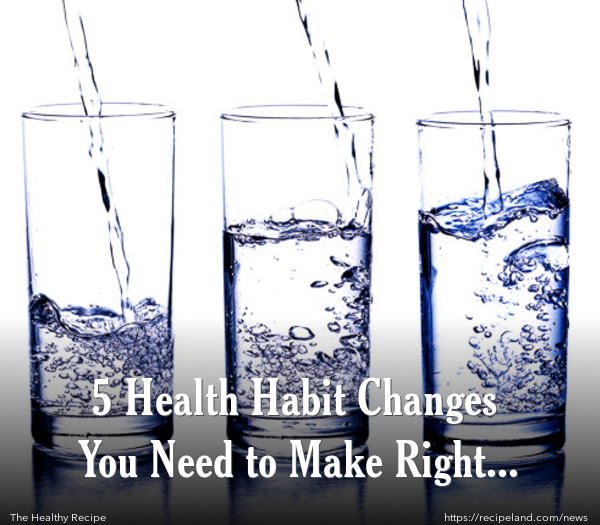You pay attention to the latest trends and follow sound medical and nutritional advice. But, you still might be getting some things wrong when it comes to following a healthy lifestyle. How can you tell which diet trends you should be paying attention to and which ones you should ignore?
Here are a few tips that are now thought to be outdated, take a look and see if you need to make any health changes.
1. How often you brush your teeth
About 2/3 of people surveyed brush their teeth twice per day. Just over a third brush only once per day. A small percentage brush after every meal. Jeffrey Cole, DDS, the 2013 President of the Academy of General Dentistry, explained that extra brushing can be harmful to the enamel on your teeth. Brushing twice a day should be sufficient for preventing cavities, gum disease, and decay. For best results, brush two times each day for about 2 minutes each time. Use floss during the middle of the day to remove any debris left from your lunch.
2. How do you handle a fever?
Nearly half of the people surveyed used over-the-counter fever reducing medications. About half of the people surveyed just let the symptoms run their course. A small percentage of people choose to use a cold compress to battle the inner heat. Because a fever is a signal that your body is trying to fight off infections, it should be treated as something that your immune system is doing to boost productivity.
Elizabeth Repasky, Ph.D., a researcher at Roswell Park Cancer Institute in Buffalo explains that fevers indicate that you body is trying to heal. So, the nearly 50% of respondents who take medicine, and the small number of those using cold compresses may be helping the infection more than intended. When you get a fever, you will often get the chills too, which is your body’s way of telling you to take cover. Unless your fever is over 103 degrees, or lasts more than three days, letting it run its course is usually fine, says Repasky.
3. How you clean your scrapes and cuts
About a third of people surveyed rinse their cuts with water. About 40% let it breathe until it scabs over. The remaining third of people clean the cut carefully with hydrogen peroxide.
According to researchers at Harvard Medical School, none of these solutions is ideal. Letting a wound breathe until a scab forms may increase the likelihood of developing a nasty scar. Hydrogen peroxide may help some, but it is not as effective at handling bacteria as you may have been led to believe. For best results, treat your minor wounds by flushing them with water, then adding a drop of petroleum jelly to keep it moist and cover with a bandage until it heals.
4. How you handle back pain
Nearly three quarters of those surveyed indicated that they felt the best way to handle back pain was to stay active. About 15% tried ice, heat and rest. A little more than 10% indicated that they would typically opt for Tylenol.
When it comes to back pain, however, a recent study published in Lancet indicated that acetaminophen, or Tylenol, was not effective at handling the pain. An Australian study indicated that heat may provide some relief, but not necessarily icing. Movement is the only solution that has been shown to truly improve back pain in most cases. Try taking a walk around the block, which will not only help your back pain, but clear your head and get you some fresh air, too.
5. How do you stay hydrated?
Just over half of those surveyed indicated that they try to stay hydrated by drinking at least 8 glasses of water during the day. About 20% of respondents indicated that they drink when they are thirsty. About a quarter of people claimed that they drank whatever seemed to make them urinate more frequently.
Stavros Kavouras, Ph.D., an associate professor at the University of Arkansas, indicated that 8 glasses of water per day is not a scientific amount, and that the amount that you need will vary depending on your size, your diet, your activity level, and the climate where you live. Instead of counting glasses of water, track how often you have to urinate. It’s a better measure of how hydrated you are. You should be peeing at least five times per day, and it should be the colour of lemonade or lighter for good health.
There are not any magic solutions for good health, but it is important to know about some of the advice you hear and the trends you may be following. Always contact your doctor with health questions, but follow these general guidelines for a good start!










Comments